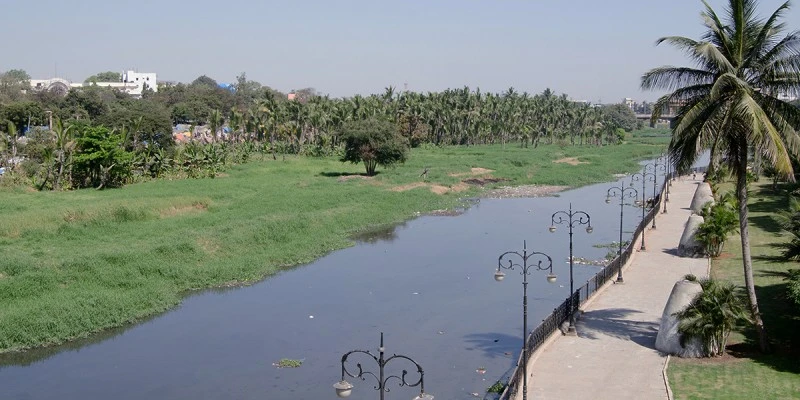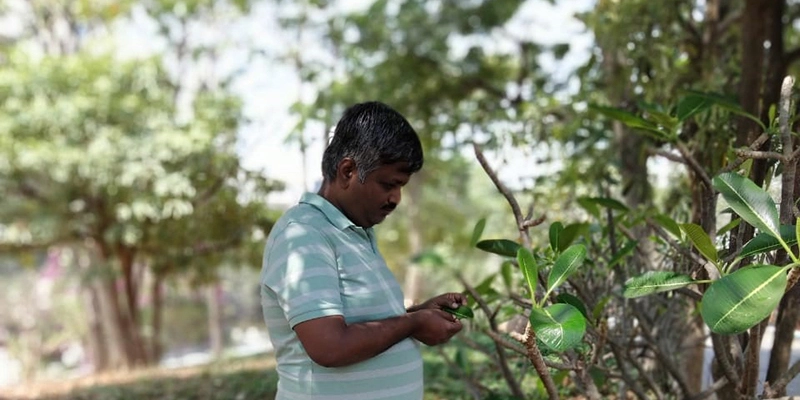
Today, on World Water Day, Novartis inaugurated an integrated watershed development project to help address water scarcity in the Telangana region of India, one of the world’s most water-stressed countries.
Managed jointly with the National Agro Foundation, a non-profit organization dedicated to “reviving rural India through rural innovations,” the project supports the Novartis 2030 water neutrality target through water conservation and efficient water utilization. The watershed area is located near Hyderabad, Telangana’s largest city and a major industrial hub, and consists of five villages and associated hamlets. It is expected to generate 50 000 cubic meters of “harvested” rainwater, the equivalent of the volume of water used in 1.4 million showers1.
A watershed is an area of land with a common set of streams and rivers that all drain into a single larger body of water, such as a river, a lake or even an ocean. Yet a watershed is much more – it is an interdependent web of living organisms, including human beings, that inhabit a geographic area and depend on it for clean soil, air and water.
“India has been facing an ongoing water crisis which has worsened due to climate change, making access to water increasingly challenging,” says Sanjay Murdeshwar, Country President at Novartis India. “Water scarcity could pose major risks to companies, supply chains and communities. Programs such as the watershed development project can help manage this resource holistically, in ways that support society’s long-term sustainability.”

Beyond water, the watershed management project hence considers the entire ecosystem, including land, flora and fauna and human beings. This integrated approach is essential to promote an inclusive development, one that maximizes economic and social welfare without compromising vital ecosystems. For instance, drinking water and sanitation facilities will be installed at local schools, livelihood support (e.g., backyard poultry, livestock for milk) provided to landless families through women self-help groups, and 3 000 trees planted.
Importantly, the program will be very cost-efficient, enabling the conservation of 75 liters of water for USD 1, the equivalent of buying around four liters of bottled water in India.

“Community watershed programs are among the most impactful strategies to address interlinked issues, but they require empowering communities to use natural resources efficiently to be effective,” says Dr M R Ramasubramaniyan, Executive Director, National Agro Foundation. “This is why the program will provide capacity-building to farmers, in particular training on advanced water-saving techniques and methods to increase agricultural productivity sustainably.”
In addition to the watershed project, as an active member of the Pharmaceutical Supply Chain Initiative, Novartis is supporting the State of Telangana’s efforts to revitalize the Musi River, a vital water source to the Hyderabad area which has been impacted by poor waste management practices.
Read more on the integrated watershed project and other water management programs
Greening pharmaceutical development

Novartis and twenty-four other world-leading institutions have joined together in an effort to develop greener medicines. The project, known as PREMIER (Prioritisation and Risk Evaluation of Medicines in the EnviRonment), aims to identify potential impacts and mitigation strategies to minimize the environmental impact of medicines and to explore options for incorporating environmental considerations earlier in the drug development process.
Earlier this month, the project launched its public website which contains all the relevant information about the consortium partners and project methodology, and will eventually provide access to a novel information and assessment system for identifying and addressing the environmental risks of medicines, accessible to all relevant stakeholders.